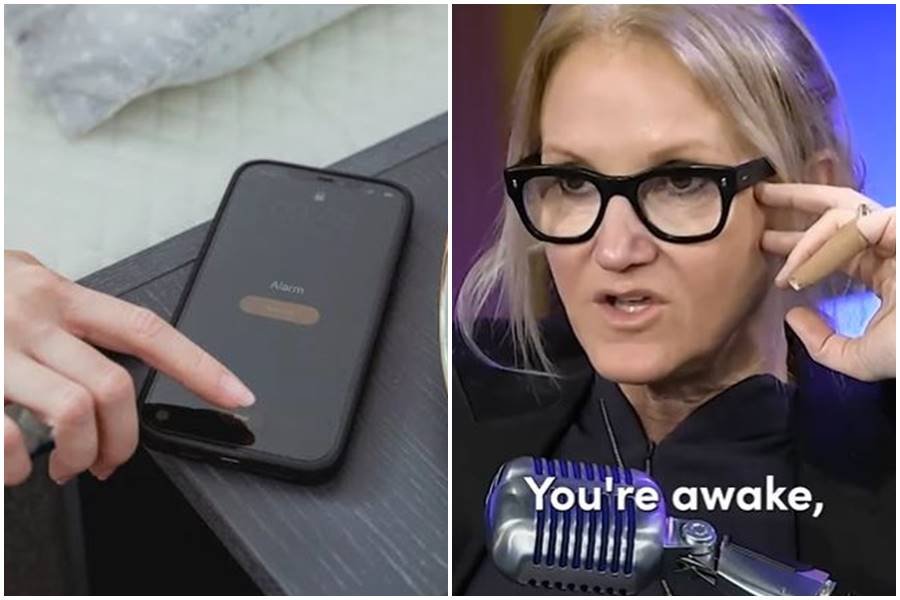Mornings can be a challenge for a lot of folks. Our beds feel incredibly cozy, and after the alarm sounds, the allure of “just five more minutes” seems irresistible. The snooze button promises a brief escape to the warmth of dreams, a little respite before facing the day. It’s a small comfort, a momentary delay from the bustle ahead.
But five minutes becomes 10 minutes and then 15 minutes, until we find ourselves racing against the clock to get to work on time. The snooze button can create a terrible cycle that feels like an addiction.
If you’re a snoozeaholic, a one-minute video by Melanie Robbins may break your dependence. Robbins is a podcast host, author, motivational speaker and former lawyer. She is known for her TEDx talk, “How to Stop Screwing Yourself Over,” and her books, “The 5 Second Rule” and “The High 5 Habit,” as well as for hosting The Mel Robbins Podcast.
In a TikTok video taken from her podcast, Robbins explains the neuroscience behind why hitting the snooze button is a terrible idea.
“Let me hit you with some neuroscience here. Two words: sleep inertia,” Robbins begins the clip. “When you hit the snooze button, you’re awake, and as the alarm turns off, your brain then drifts back into sleep.”
“Here’s the thing that researchers have figured out—when you drift back to sleep after you’ve woken up, your brain starts a sleep cycle. Sleep cycles take 75 to 90 minutes to complete,” she continued. “So, when that alarm goes off again in nine minutes and you’re like ‘oh my God’—have you ever noticed you’re in deep sleep when you drift back to sleep?”
Robbins reasons that because you’ve entered a new sleep cycle, you will feel even more exhausted than if you woke up when the alarm first went off, and the feeling can last for a good part of the day.
“That’s because you’re nine minutes into a 75-minute sleep cycle.” That groggy, exhausted feeling that you have, that’s not a function of how well you slept. “It takes your brain about four hours to get through that groggy-a** feeling,” Robbins says.
If you’re looking for a scientific take on the same issue, Steven Bender, a clinical assistant professor at Texas A&M University, agrees with Robbins. “Delaying getting out of bed for nine minutes by hitting the snooze is simply not going to give us any more restorative sleep. In fact, it may serve to confuse the brain into starting the process of secreting more neurochemicals that cause sleep to occur, according to some hypotheses,” Bender wrote in an article published by Popular Science.
Ultimately, it’s all about feeling our best in the morning to have a productive day. Most people snooze because they want a few extra minutes of sleep to feel even more energized. But, unfortunately, the truth is that it makes you feel worse. So, hopefully, all those snoozers out there will break their habits and get up when the alarm sounds so they can feel their best.


































